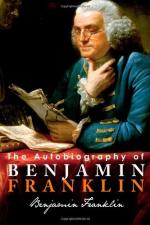It was, however, some time before those papers were much taken notice of in England. A copy of them happening to fall into the hands of the Count de Buffon, a philosopher deservedly of great reputation in France, and, indeed, all over Europe, he prevailed with M. Dalibard to translate them into French, and they were printed at Paris. The publication offended the Abbe Nollet, preceptor in Natural Philosophy to the royal family, and an able experimenter, who had form’d and publish’d a theory of electricity, which then had the general vogue. He could not at first believe that such a work came from America, and said it must have been fabricated by his enemies at Paris, to decry his system. Afterwards, having been assur’d that there really existed such a person as Franklin at Philadelphia, which he had doubted, he wrote and published a volume of Letters, chiefly address’d to me, defending his theory, and denying the verity of my experiments, and of the positions deduc’d from them.
I once purpos’d answering the abbe, and actually began the answer; but, on consideration that my writings contain’d a description of experiments which any one might repeat and verify, and if not to be verifi’d, could not be defended; or of observations offer’d as conjectures, and not delivered dogmatically, therefore not laying me under any obligation to defend them; and reflecting that a dispute between two persons, writing in different languages, might be lengthened greatly by mistranslations, and thence misconceptions of one another’s meaning, much of one of the abbe’s letters being founded on an error in the translation, I concluded to let my papers shift for themselves, believing it was better to spend what time I could spare from public business in making new experiments, than in disputing about those already made. I therefore never answered M. Nollet, and the event gave me no cause to repent my silence; for my friend M. le Roy, of the Royal Academy of Sciences, took up my cause and refuted him; my book was translated into the Italian, German, and Latin languages; and the doctrine it contain’d was by degrees universally adopted by the philosophers of Europe, in preference to that of the abbe; so that he lived to see himself the last of his sect, except Monsieur B——, of Paris, his eleve and immediate disciple.
What gave my book the more sudden and general celebrity, was the success of one of its proposed experiments, made by Messrs. Dalibard and De Lor at Marly, for drawing lightning from the clouds. This engag’d the public attention every where. M. de Lor, who had an apparatus for experimental philosophy, and lectur’d in that branch of science, undertook to repeat what he called the Philadelphia Experiments; and, after they were performed before the king and court, all the curious of Paris flocked to see them. I will not swell this narrative with an account of that capital experiment, nor of the infinite pleasure I receiv’d in the success of a similar one I made soon after with a kite at Philadelphia, as both are to be found in the histories of electricity.




